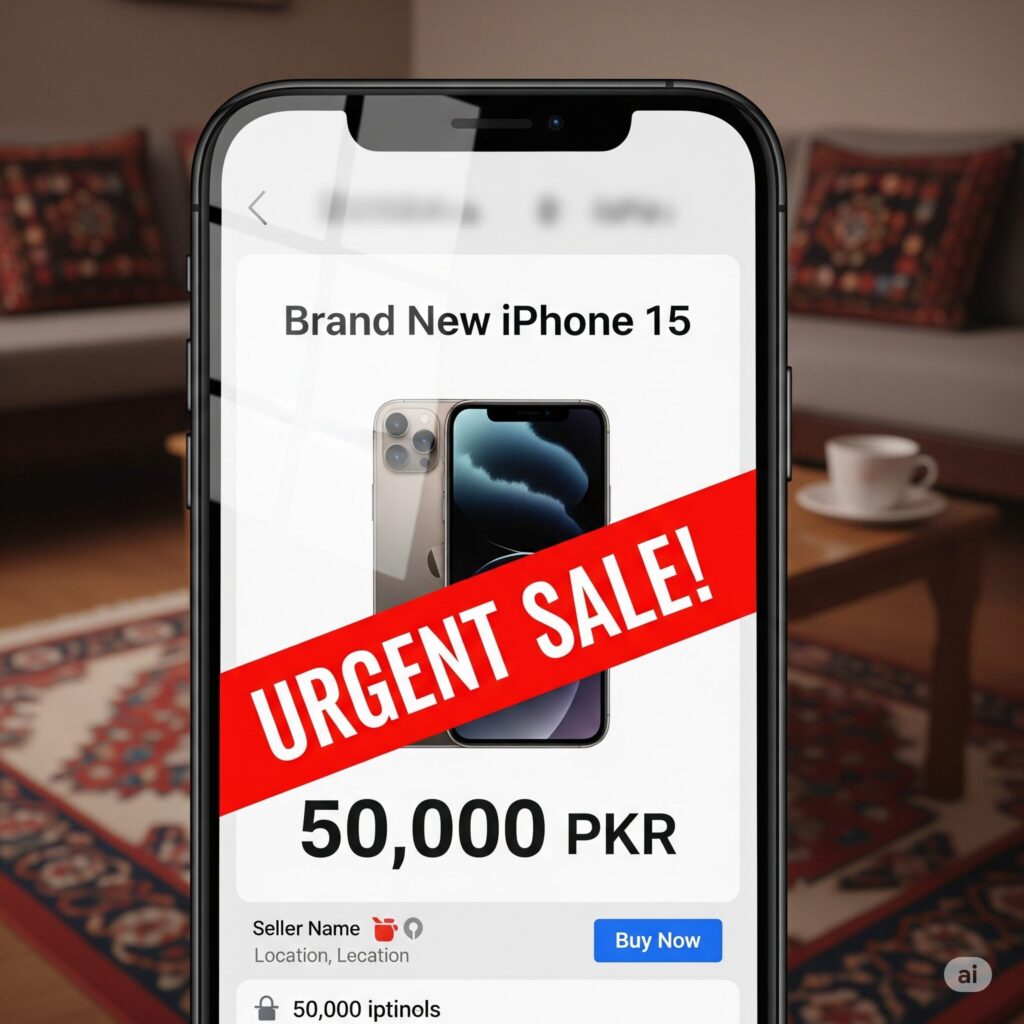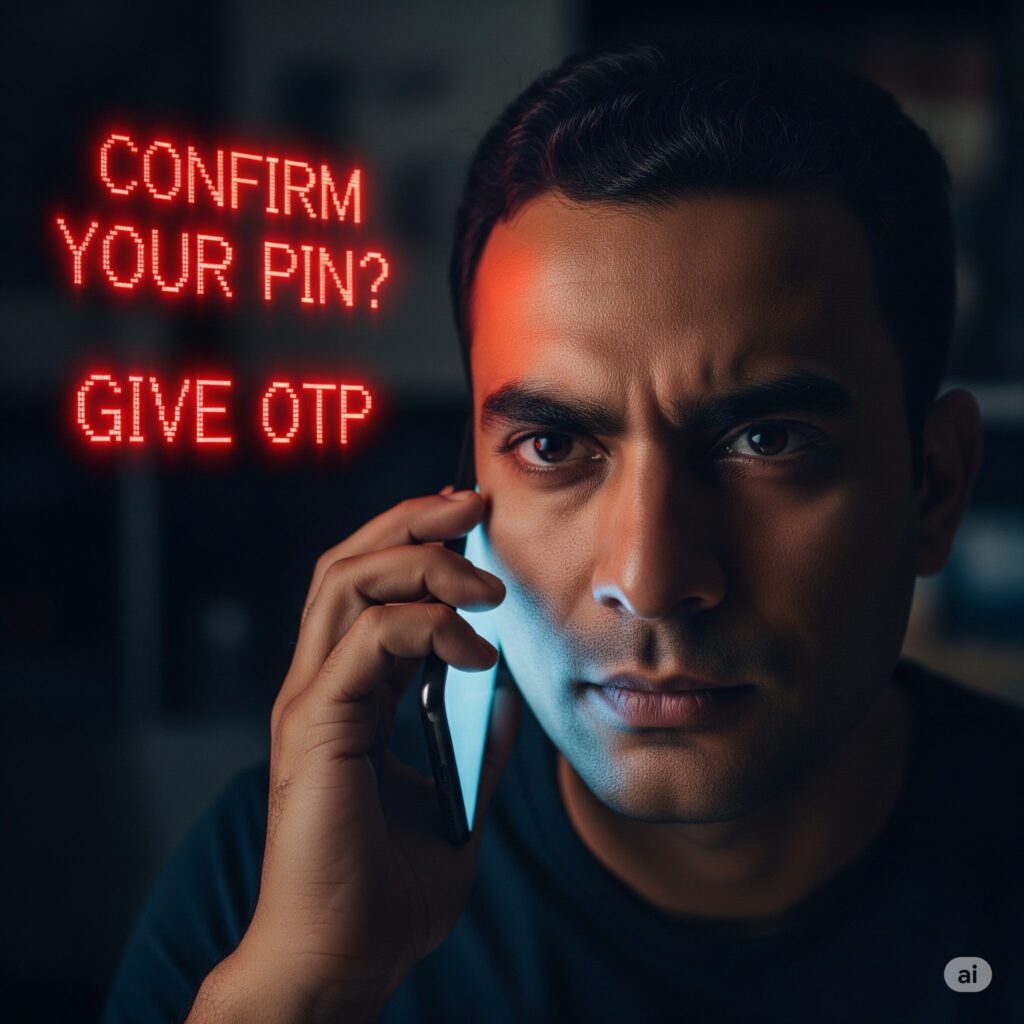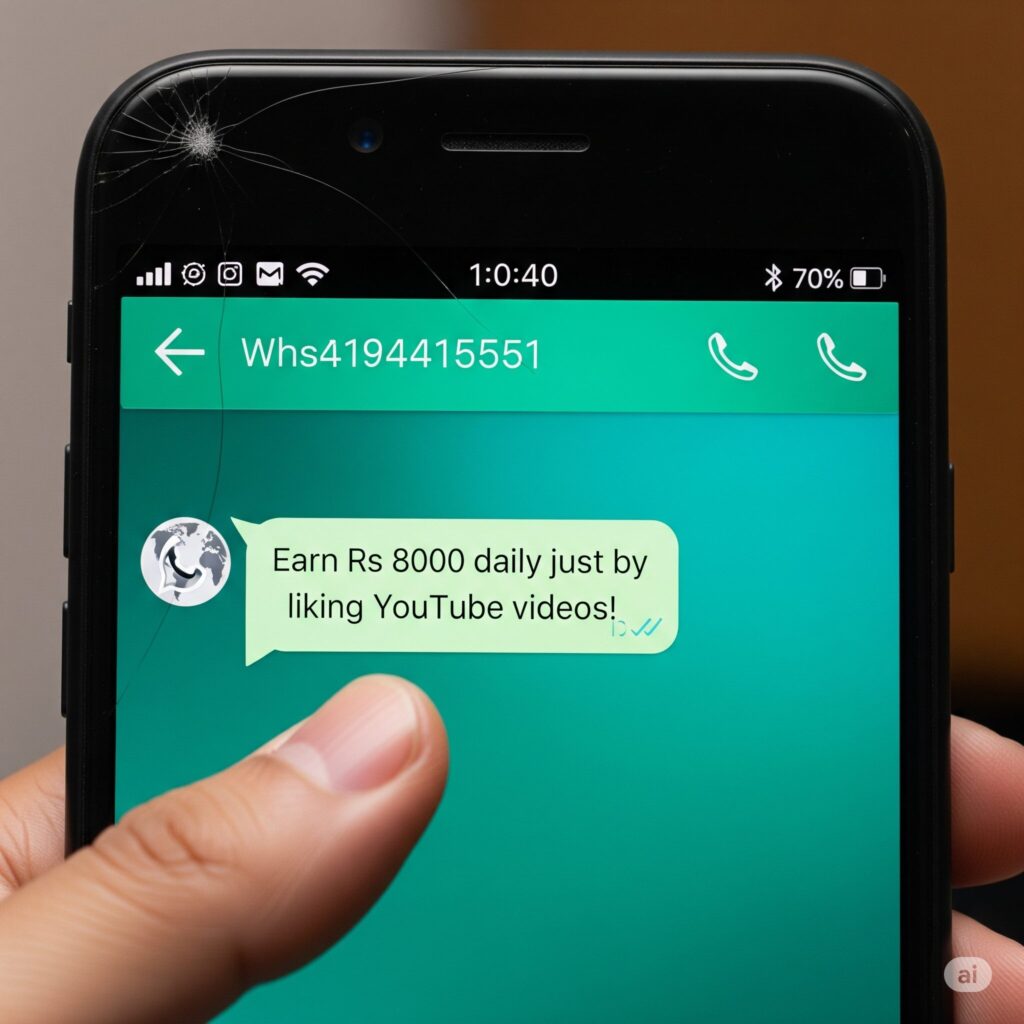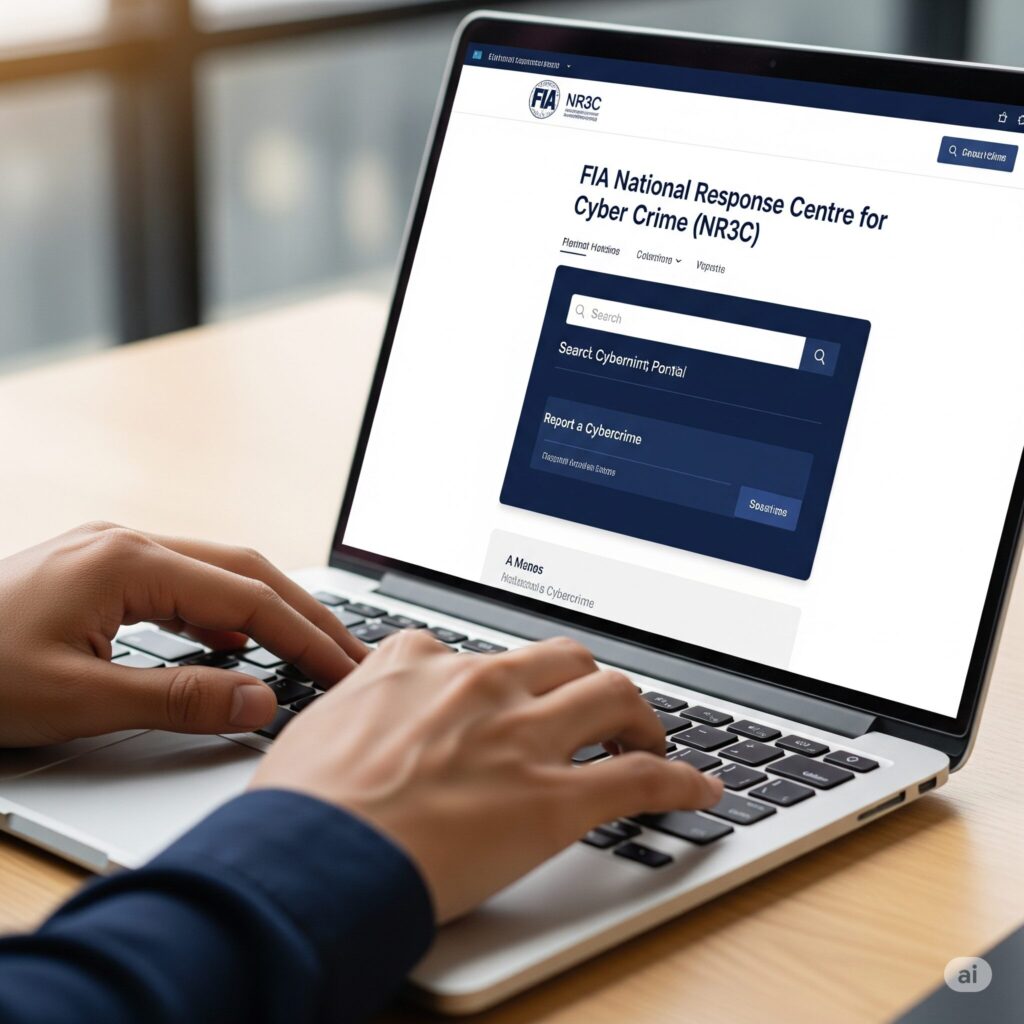Hello everyone, Adnan here from TechByAdnan.
We’ve all heard that dreaded sentence from a friend or family member, or maybe we’ve felt that sinking feeling in our own stomach: “Bhai, I’ve been scammed.”
Whether it was a fake seller on OLX, a suspicious message on WhatsApp, or an Easypaisa call that just felt wrong, online fraud is a painful and growing reality in Pakistan. These scams aren’t just about losing money; they can be embarrassing and stressful.
As a tech writer living right here in Lahore, I’ve seen these scams evolve firsthand. I’ve helped my own relatives understand fake investment schemes and guided friends away from those “too good to be true” deals on Facebook Marketplace.
This guide isn’t just another list of warnings. It’s a collection of my personal experiences, research, and practical steps to arm you with the knowledge to protect your hard-earned money. My goal is simple: to help you spot a scam before it happens, so you never have to make that dreaded call.
The Golden Rule of Online Safety in Pakistan
Before we dive in, I want you to remember one simple but powerful rule. It will protect you from 99% of all scams.
If a deal feels too good to be true, it almost always is. If anyone asks you for your OTP (One-Time Password), PIN code, or to send them money first to “unlock” a prize or a deal – it is a SCAM 100% of the time. No exceptions.
The Top 5 Online Scams in Pakistan (And How They Work)
Scammers are clever, but they often use the same tricks. Here are the most common scams I’ve seen personally and how you can spot them.
1. The OLX / Facebook Marketplace “Urgent Sale” Scam
This one is incredibly common. A seller posts a high-value item, like a new iPhone or a motorbike, for a price that is way too low. They often pretend to be an army officer, a doctor, or someone who is being urgently transferred to another city and needs to sell their things quickly.

How it Works: I almost fell for this myself when looking for a used laptop. The “seller” seemed professional and even sent me a picture of his fake army ID card to build trust. He insisted that he was being posted to Quetta the next day and couldn’t meet in person. He asked me to send a small “delivery fee” of Rs. 3,000 via Easypaisa to “secure the deal,” promising to ship the laptop immediately. Of course, if you send the money, the seller and the ad disappear forever.
Red Flags I’ve Seen:
- The price is far below the market value.
- The seller creates a fake sense of urgency.
- They refuse to meet in person for any reason.
- They ask for a partial payment upfront before you have seen the item.
2. The Easypaisa / JazzCash “Prize Winning” Scam Call
My own uncle received this call last month. A very friendly and professional-sounding person calls, claiming to be from a TV show like Jeeto Pakistan or from the mobile company itself. They congratulate you, telling you that you’ve won a large cash prize of several lakhs or even crores.
How it Works: To claim your “prize,” the scammer says they just need to verify your account. They will then ask you for your account PIN code or tell you that you will receive an OTP on your phone, which you need to read back to them. This OTP is actually for a “Forgot Password” request on your account. Giving it to them gives them full access, and they will drain your account in seconds.

Red Flags I’ve Seen:
- You receive an unexpected call about winning a prize you never entered.
- Anyone, for any reason, asks you for your PIN or OTP. Real companies will NEVER ask for this.
3. The WhatsApp “Work From Home” Scam
A friend of mine who was looking for part-time work was targeted by this. You get a message on WhatsApp, usually from an unknown international number. They offer an incredibly easy job: “Like YouTube videos and earn Rs. 5,000 daily!”

How it Works: To gain your trust, they give you a simple task and actually pay you a small amount, like Rs. 500. You start to believe it’s real. Then, they tell you that to get bigger, higher-paying tasks, you need to sign up for a “premium membership” or “VIP plan” by paying a fee of Rs. 10,000 or more. Once you pay the larger amount, they block you, and the “job” vanishes.
Red Flags I’ve Seen:
- Unsolicited job offers from unknown numbers.
- Promises of very high pay for very easy tasks.
- Any job that asks YOU to pay money to start earning.
4. The Fake Investment App / Website Scam
These are some of the most dangerous scams as they can lead to huge losses. Websites and apps appear online, promising impossible returns like “double your money in 15 days” or “guaranteed 10% daily profit.”
How it Works: They often look very professional. You invest a small amount (e.g., Rs. 20,000), and your online dashboard magically shows your profit growing every day. This encourages you to invest more. The problem starts when you try to withdraw your money. The website will make excuses, stop responding, or demand you pay more money for fake “taxes” or “withdrawal fees.”
Red Flags I’ve Seen:
- Any promise of “guaranteed” or unrealistically high profits.
- The company is not registered with the SECP (Securities and Exchange Commission of Pakistan).
- There is pressure to invest quickly before the “opportunity” closes.
5. The “Customs/Parcel” Scam
This scam preys on the excitement of receiving a gift. You get a call or a message claiming that a valuable parcel (like a new phone or gold) has arrived for you from a relative overseas, but it’s stuck at customs.
How it Works: The scammer, pretending to be a customs agent, will say that to release the parcel, you must first pay a “customs fee” or “tax.” They will ask you to transfer this money into a personal bank account or an Easypaisa number. Real government agencies will never ask for payment into a personal account.
Red Flags I’ve Seen:
- You weren’t expecting a parcel in the first place.
- The fee is requested to be paid to a personal mobile or bank account.
I’ve Been Scammed! What Do I Do NOW?
If the worst happens, the most important thing is to act quickly and not to feel ashamed. These criminals are professionals.

- Secure Your Accounts: Immediately log in and change the passwords for your banking apps, mobile wallets, email, and social media. If you can’t log in, use the “Forgot Password” option yourself to lock the scammer out.
- Call Your Bank / Mobile Wallet Helpline: Report the fraudulent transaction to them right away. They have dedicated fraud departments and can advise you on the next steps.
- Report to the Authorities: This is a crucial step to help stop these criminals from hurting others. You can and should report the crime to the FIA Cyber Crime Wing. It is a straightforward process.
- Official Complaint Portal: You can file a complaint directly on their official website: https://complaint.fia.gov.pk/
- What you’ll need: Before you report, gather all the evidence you have: screenshots of your conversations, the scammer’s phone number or profile link, and any transaction IDs from your payment.
Frequently Asked Questions (FAQ)
I just realized I was scammed. What is the very first thing I should do?
Immediately call your bank or mobile wallet’s official helpline to report the fraud and block the transaction if possible.
Is a picture of a CNIC from a seller on OLX or Facebook enough proof that they are legitimate?
No, never. These are almost always fake or stolen IDs used to trick you. Always prefer a safe, in-person meeting.
Are the WhatsApp messages about winning a prize from “Jeeto Pakistan” or getting money from BISP real?
No, they are 100% scams. Block the number immediately. Official organizations will never contact you like this.
How can I quickly spot a fake online shopping website?
Check that the address starts with “https://” and look for a real company address and phone number on the site. If it feels suspicious, it probably is.
What is the single most important rule to avoid getting scammed?
Never, ever share your account PIN or the OTP (One-Time Password) you receive via SMS with anyone over the phone.
What’s the best way to protect my parents from these scams?
Make a simple family rule: they must call you first before they ever respond to a message or call about money, prizes, or account problems.
Conclusion: Your Best Defense is Awareness
You don’t need to be a tech expert to stay safe online. Your best defense will always be a healthy dose of skepticism and awareness.
Remember the golden rule: pause and think before you ever click a suspicious link or send money. By reading this guide and understanding how these scams work, you are already far more prepared to protect yourself and your family.
Please share this article with your friends and family, especially older relatives who might be more trusting and vulnerable. Let’s work together to make Pakistan’s digital space safer for everyone.
Stay safe!
This guide was written by Adnan at TechByAdnan. Based in Lahore, he is dedicated to creating easy-to-understand guides that empower Pakistanis to use technology safely and effectively.
READ MORE ARTICLES
The Ultimate Guide: How to Optimize Your Gaming PC for RT
How to Optimize Gaming Laptop for VR: Complete 2025 Guide
How I Built a Tools Website with Google Gemini (A Step-by-Step Case Study)
Intelligent Trading for the Modern Crypto Market
SadaPay vs NayaPay: The Ultimate Comparison for Pakistani Users (2025 Update)
